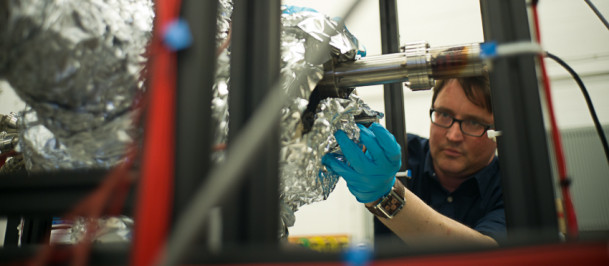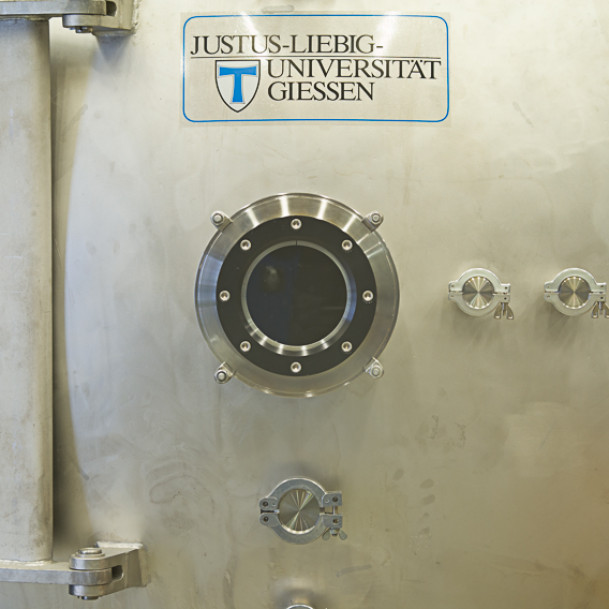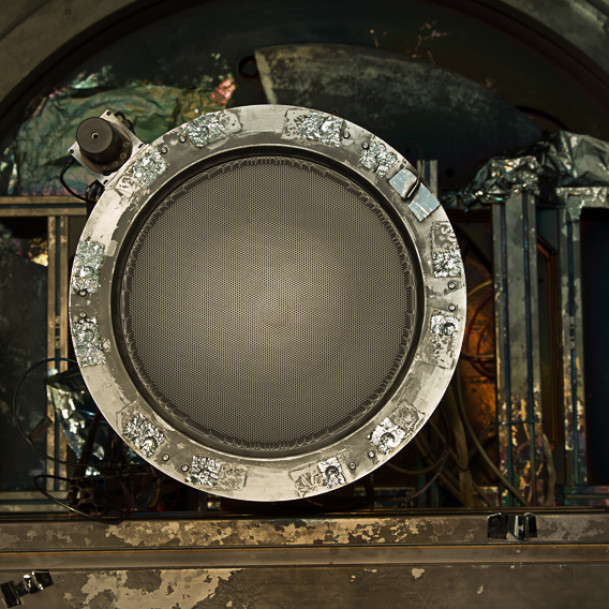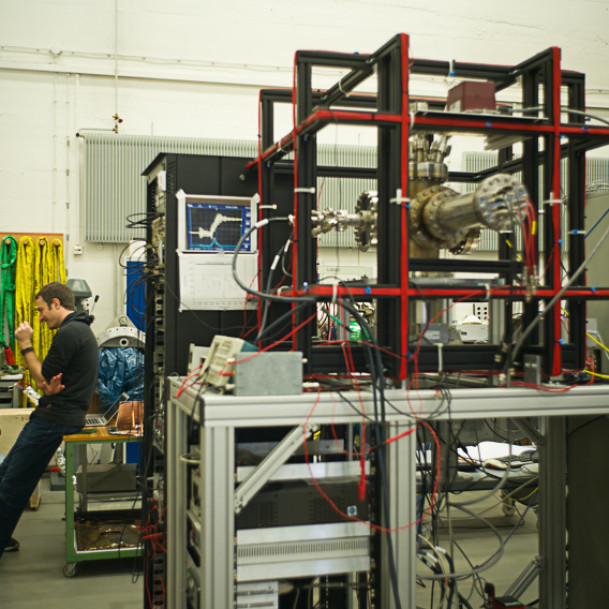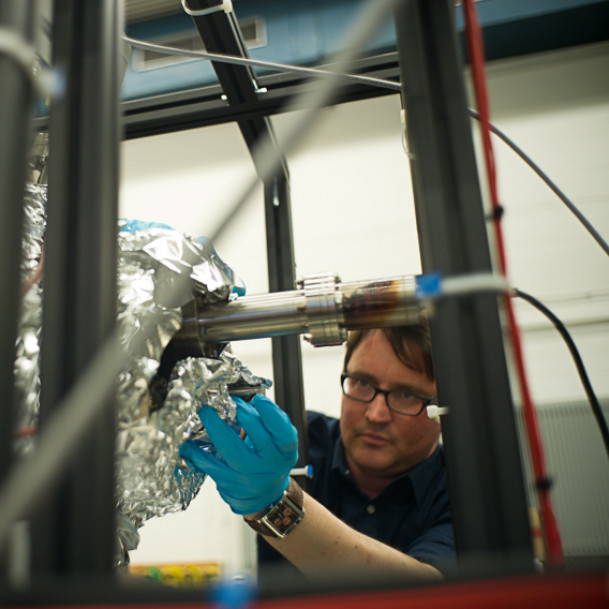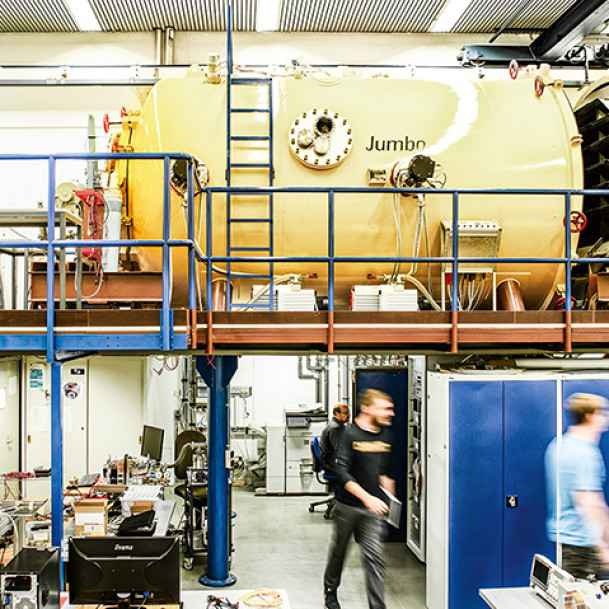Lift-Off
The new study program Physics and Technology for Space Applications literally took off like a rocket. We asked Prof. Dr. Peter Klar of the University in Giessen what he makes of that.
The new bachelor course Physics and Technology for Space Applications (PTRA) was planned and prepared well in advance. What is special about it: This study program is meant to combine the best from two universities in a cooperation between Justus Liebig University (JLU), Giessen, and TH Mittelhessen University of Applied Sciences (THM).
The physical and electrotechnical aspects of astronautics
Two years ago, when those responsible for the program started the countdown, there was a lot of worry and uncertainty, paired with cautious optimism – just as with any rocket launch. “Of course, we had stage fright at the introduction and were worried if we could keep our promise to the university, in particular since the accreditation of the study program was postponed and we were only able to promote it quite late. But our expectations have been completely satisfied!”, Prof. Dr. Peter Klar of the 1st Institute for Physics at JLU Giessen rejoices.
More than 50 freshmen and women began their studies in the winter semester 2017, another 50 started in the following year. The students come from all over Germany because the study program covers a field which has not existed in this way before – apart from a similar course at the university of Bremen. “Classical study programs comprise both aviation and astronautics and are typically classed among mechanical engineering. For us, astronautics play the central role, and in particular the physical and electrotechnical aspects which are becoming more and more important,” Professor Klar explains. JLU with its physical fields for experimentation and THM with its orientation towards scientific engineering complement each other perfectly in this respect.
Interdisciplinary study program at two universities
The PTRA study program consists of physics and electrical engineering in equal proportions, is appropriately oriented towards interdisciplinary studies and is borne by both universities together. In its course, the study covers more and more elements specific for space travel. In doing so, the JLU can build on its brilliant reputation in the field of electric aerospace engines which is closely linked with a former professor: “At the beginning of the 1960s, Horst Löb truly pioneered this field,” Professor Klar says, “the propulsion units of type RIT which he developed later are among the maybe three or four ion thrusters which have prevailed on the market for medium-sized and big propulsion units until today.” It is a well-known noble aspiration that tradition has its responsibilities; but in the new study program, these responsibilities lead directly into modern times and from there into the future of astronautics. For one thing, there is currently a paradigmatic shift from chemical to electric satellite propulsion, and for another, apart from the national space agencies, there are more and more commercial players who discover space for their purposes.
This high-potential framework opens up splendid opportunities for PTRA students which they can already use during their study course. “One of our female students,” Professor Klar relates, “is currently at an ONERA institute in Paris for three months doing research on a new propulsion engine type in the course of her internship.” ONERA is the French counterpart to the German Aerospace Center (DLR), and being involved in such international aerospace projects is particularly appealing both for students and teachers of the new study program.
Splendid prospects after graduation
Even the prospects after graduation are splendid, of this Professor Klar is convinced: “Astronautics is getting more courageous and more dynamic, many new tasks are emerging. Our graduates meet the requirement specifications between physics and electrical engineering, which are in great demand in the burgeoning aerospace industry. What’s more, the PTRA study program belongs to the engineering sciences and the hard natural sciences in any case which definitely paves the way for their occupational future in Germany, not just in astronautics.”
And all graduates who find that the bachelor course is not enough may look forward to the master study program which is planned to start in the winter semester 2020/2021. The preparations are running at top speed. At THM, a new professorship of “Aerospace Electronics” is currently staffed, while JLU is planning for another professorship in the field of “Aerospace Physics”. What is more, it is intended to involve the Center for Materials Research at JLU more deeply with regard to the specific requirements of “materials for space travel”. So, the next rocket launch lies ahead. The countdown has already started.
www.uni-giessen.de/ptra
